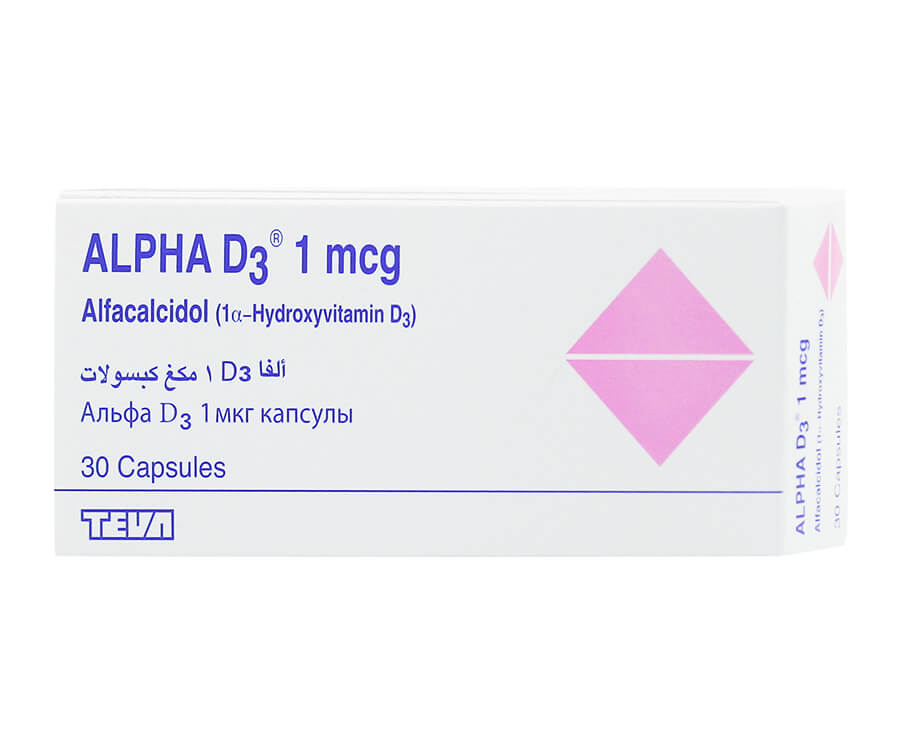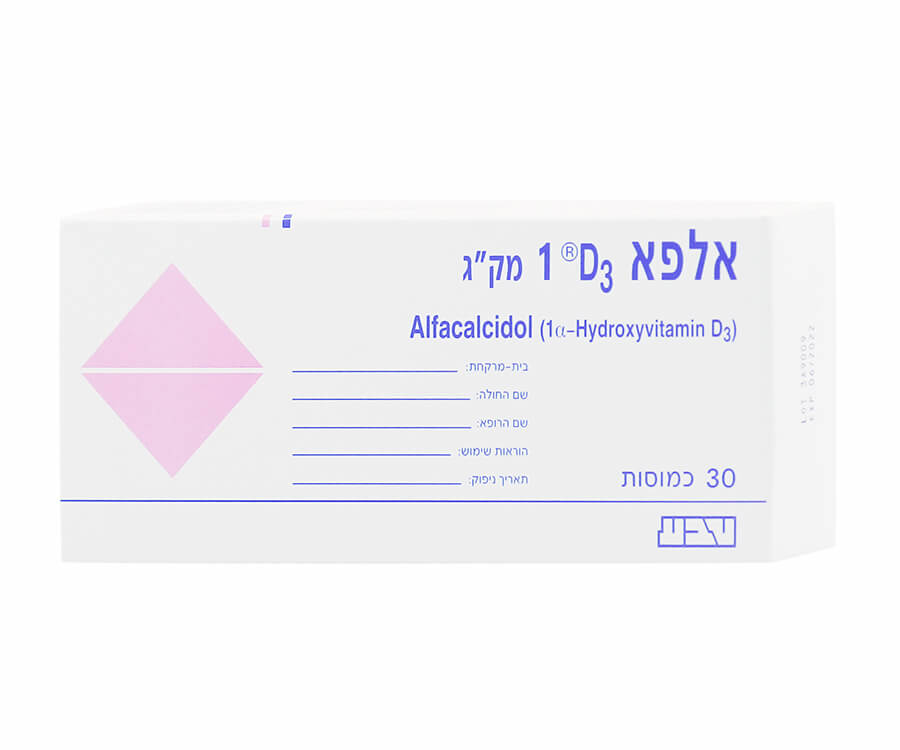Calcitriol / Alpha D3 (alfacalcidol) is an analog of vitamin D, which is important for calcium absorption from the stomach and for calcium functioning in the body. It is prescribed to treat bone disease caused by kidney problems (renal osteopathy), hypo- and hyperparathyroidism, and types of bone conditions such as rickets, osteomalacia (softening of the bones), and osteoporosis.
Dosage
The dosage and regimen will be set by the prescribing doctor. Regular blood checks will usually be performed to check on calcium levels. Do not chew or break open the capsules. Swallow each dose whole with water,
This text is for informational purposes only. Please consult a doctor or pharmacist before using any medication.
Read the information leaflet that comes with the medication.
If after taking Alpha D3, a sudden allergic reaction (anaphylaxis) occurs, with symptoms like swelling of the face, tongue, or throat making it difficult to breathe or swallow, or there is wheezing, hives, rash, blistering or peeling of the skin, call a doctor or 911 right away, or go to an emergency room immediately.
Most people who use Alpha D3 do not experience any negative side effects. Doctors prescribe Alpha D3 because they assess the benefits of such treatment outweigh any likely unwanted effects.
Some of the side effects that have been reported include:
- Nausea, vomiting, or diarrhea
- Generalized weakness and lack of energy, lack of appetite, thirst, weight loss
- Sweating
- Dizziness (vertigo)
- Headache
- Excessive urination
- Dry mouth or a metallic taste in the mouth
- Pain in muscles or bones
- Constipation
- Skin effects, such as itchiness, rash, and itchy skin rash that appears in the form of red bruises (urticaria)
Other side effects may indicate kidney problems, with symptoms such as decreased frequency of urination, swelling of different parts of the body, or fever accompanied by pain on the side of the body. Report these to a doctor as soon as possible.
Not all side effects are listed here. If these or other unlisted symptoms persist or worsen, consult a healthcare provider or pharmacist.
Several conditions can be caused by calcium deficiencies, such as:
- Rickets (slowed growth and development in childhood, painful bones, muscle weakness, cramps, and spasms)
- Osteomalacia (softening of the bones)
- Bone abnormalities
- Changes in parathyroid hormone levels (hyper- or hypo-parathyroidism)
- Osteoporosis.














